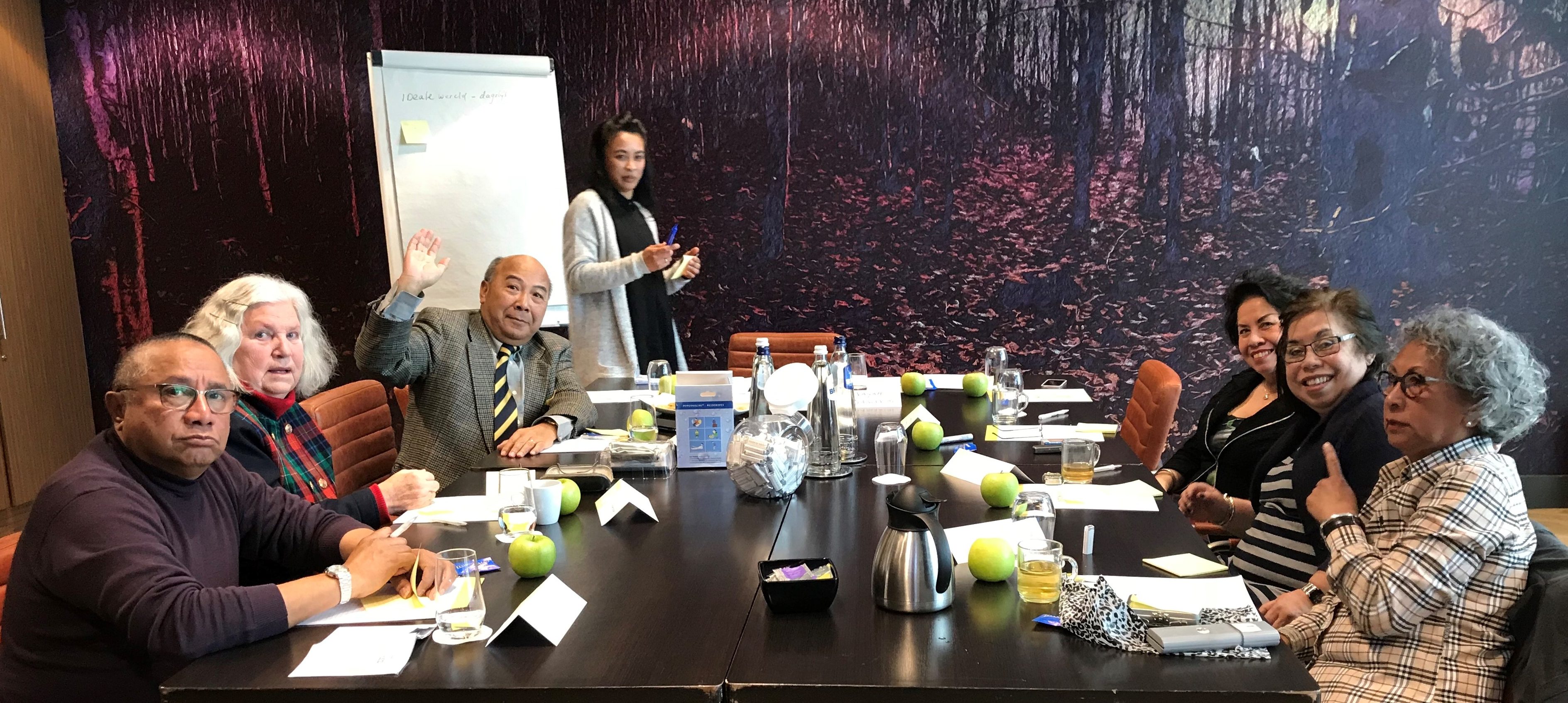In the past years, Leyden Academy developed the Life and Vitality Assessment. Built upon the views of older adults, this instrument helps people to find out what is important in their lives and how they can enhance their own wellbeing. But what do we really know about the wellbeing of seniors with a non-Dutch background, a fast growing and relatively vulnerable demographic group in Dutch society? How do they experience growing older, what are their desires and needs and how do they view their role in today’s society? To find answers to these questions, we organised eight focus groups in early 2018 with seniors of Western, Surinamese, Antillean, Indonesian, Turkish and Moroccan descent. Data collection is currently taking place, we expect the first results in the Summer of 2018.
A fast growing group
Seniors with a non-Dutch background are a fast growing demographic group in Dutch society. According to Statistics Netherlands (CBS), on 1 January 2017, the older migrant population (55+) in the Netherlands totalled 800,000. About half of these seniors is over 65 years old, where 117,000 are non-Western and 305,000 are Western migrants. Among those aged over 75, about 37,000 are non-Western and 130,000 are Western migrants. In the past twenty years, the proportion of migrants aged 65 and older has increased significantly within their own group, reaching 5.4% for non-Western and 18.1% for Western migrants. There are four major groups of older non-Western migrants in the Netherlands in terms of absolute numbers as well as coverage in research, namely seniors from Suriname, Turkey, Morocco, and the Netherlands Antilles and Aruba.
Relatively vulnerable
Due to various factors such as their personal histories, migration and socioeconomic status, older people with a non-Dutch background are more vulnerable than their peers born in the Netherlands. At this moment, they face age related diseases at a relatively early age. In addition, they cope with changing social and familial circumstances and expectations. Families are shrinking, the living space is often limited and the distances to family members are increasing. Also, expectations around growing older seem to change. It is not always obvious, and sometimes not even desired, that the family takes care of them. At the same time, the existing social arrangements leave little room for the diversity that is a result of these changes.
Attention for wellbeing
There is increasing attention for these challenges, but primarily from a healthcare point of view, such as the mapping of risk factors for certain diseases and more culture-sensitive and personal treatment and care. What is still lacking is a broader social approach that goes beyond a disease-oriented, problem-oriented approach. Just like elderly people who are born in the Netherlands, older migrants mainly suffer from chronic diseases with which they live for many years. Quality of life and wellbeing are becoming more important. For caretakers this is a major challenge, because they encounter several difficulties: a different language, functional illiteracy (which is also around 30% among older people born in the Netherlands) and different expectations towards the professional. Central questions that have remained unanswered, include: how can we make their lives as pleasant as possible? What wishes and desires do they have, apart from their disease? What does a pleasant old age look like for them?
Eight focus groups
In February, March and April 2018 we have had conversations with groups of seniors with a non-Dutch background to obtain a better view of how they experience growing older, what their desires and needs are and how they see their role in society. Our first impressions from these focus groups: older Western migrants seem relatively happy with their lives in the Netherlands. In the focus groups with seniors from of Surinamese, Antillean, Indonesian, Turkish and Moroccan descent, the conversations covered for instance the quality of healthcare, medication and staying in shape. But also topics were discussed like family, good food and the countries of origin, that have also changed significantly. We are now collecting the data from the eight focus groups and expect the first results in the Summer of 2018.
If you have any questions or suggestions or wish to stay updated on this research, please contact Nina Conkova.
